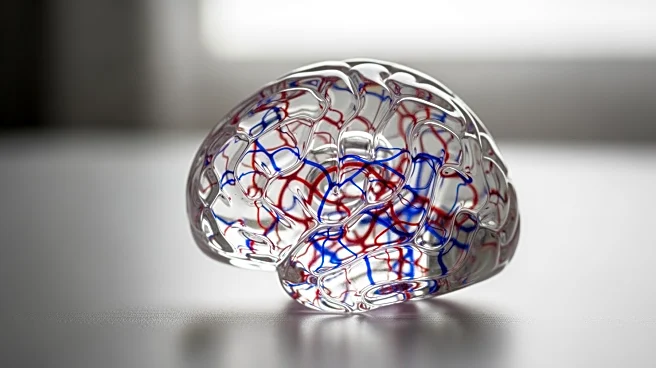What's Happening?
A retrospective analysis of pediatric patients with acute lymphoblastic leukemia (ALL) reveals significant cerebrovascular complications during treatment. These complications, affecting 12.5% of patients,
often require modifications to chemotherapy protocols, impacting treatment efficacy. The study highlights the role of leukemic cells infiltrating the central nervous system, leading to cerebrovascular lesions. Commonly associated chemotherapeutics include methotrexate, vincristine, and L-asparaginase, which can cause neurotoxicity and require therapeutic adaptations to manage toxicity while preserving efficacy.
Why It's Important?
Cerebrovascular complications pose a significant challenge in treating pediatric ALL, potentially disrupting curative therapy and affecting patient outcomes. The study underscores the need for adaptive strategies to balance toxicity management with treatment efficacy. Understanding the mechanisms of cerebrovascular involvement can inform therapeutic adaptations and improve survival rates. The findings highlight the importance of multidisciplinary approaches in managing these complications and optimizing care for pediatric leukemia patients.
What's Next?
Future research may focus on identifying clinical predictors of neurotoxicity and developing personalized treatment adjustments to minimize cerebrovascular risks. Advances in radiotherapy and pharmacogenetic profiling could enhance treatment precision and reduce complications. Continued collaboration between hematologists, neurologists, and radiologists is essential to improve patient outcomes and quality of life. Prospective studies incorporating standardized imaging protocols and biomarker evaluation may refine therapeutic approaches and stratify risk.








